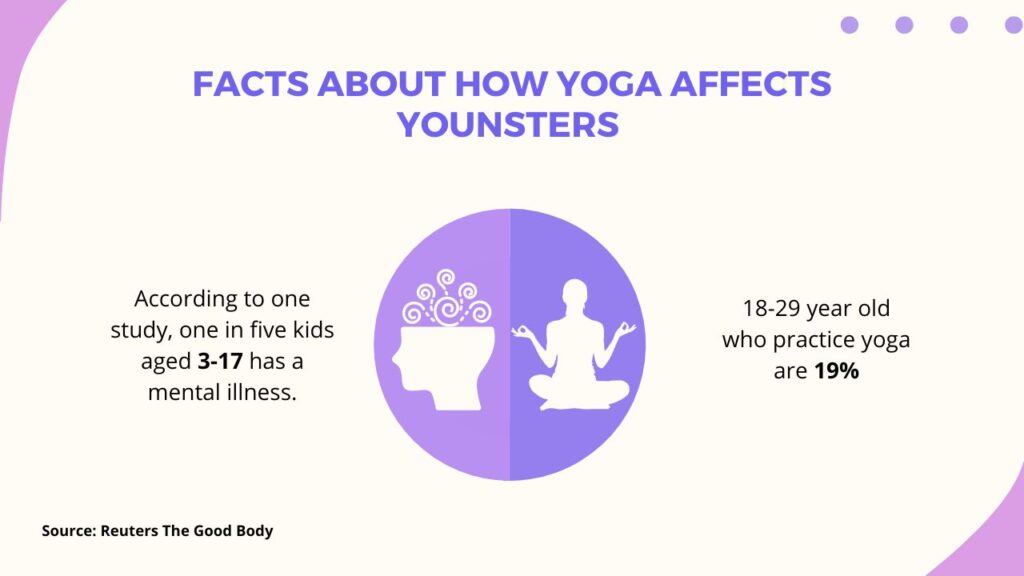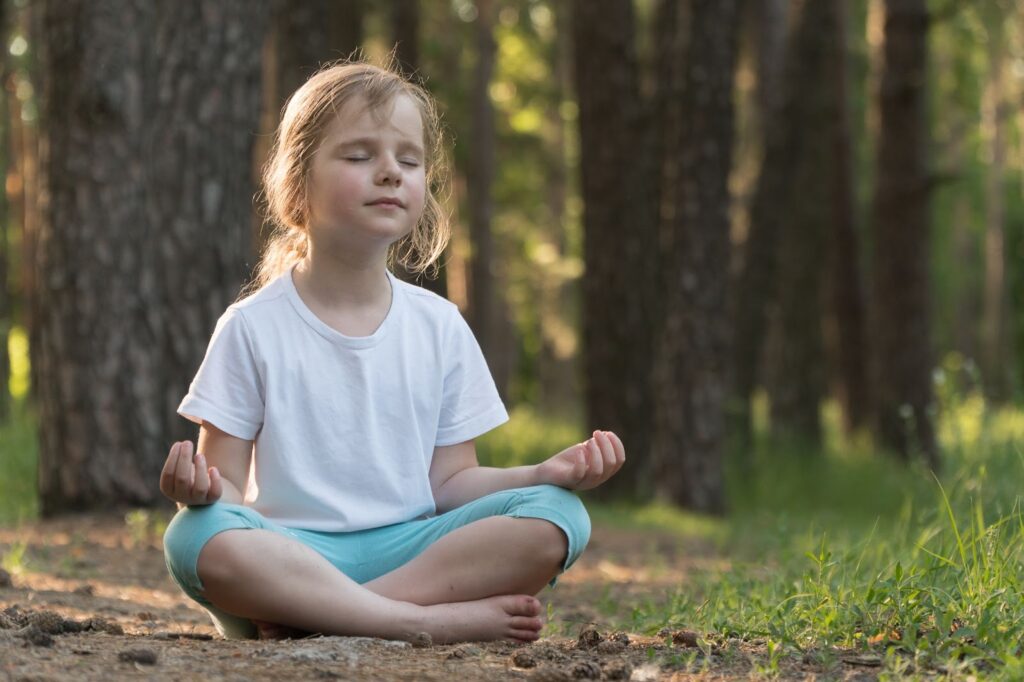You may be concerned about your child's mental and emotional well-being as a parent. Some troubling habits incline parents to change their parenting habits, allowing their children to indulge in emotive control therapy. While melancholy, anxiety, and stress in children are rising, parents must educate their children on relaxation practices. According to one study, one in five kids aged 3 to 17 has a mental illness. This means that parents must focus more on meditation rather than giving them gadgets to overcome negative emotions.
The importance of slowing down, taking a deep breath, and emptying one's mind cannot be overstated in today's fast-paced and multitasking environment. Mindfulness meditation positively affects people of all ages. It can positively impact your children's lives if you introduce it early. It helps individuals develop compassion, happiness, and kindness.
Is Meditation Really for Kids?
Mindfulness meditation is a practice that helps us cultivate an awareness of the present moment in our thoughts and bodies. Maintaining a balanced lifestyle and forming healthy habits need constant attention to the current moment. Just like meditation for adults, the only difference between meditation for children and adults is that parents guide the meditation.
Mindfulness meditation has been shown to promote mental health, coping, and self-regulation, as well as reduce hypertension and bad school behaviors, according to the American Academy of Pediatrics. Meditation has been shown to improve the mental and physical health of children in numerous research.

Meditation & Facts: Scientific Research
There are several benefits to practicing mindfulness meditation. Meditation has many benefits, from improving physical, mental, and emotional well-being. Mindfulness:
- Boosts the intelligence level
- Resilience is strengthened when kindness is increased
- Enhances the quality of sleep
- Reduces symptoms of attention deficit hyperactivity disorder
- It enhances interpersonal skills
- Inhibition is improved, as well as shift
- Cognitive abilities of Revamp
- Achieves a better understanding of oneself and others
- Improves one's outlook
- A decrease in tension and anxiety
- Increases focus and memory
- Enhances bodily well-being in general
- A rise in grades and test scores is evident
- Encourages personal growth by fostering empathy for others
- Working memory and planning are boosted
- Immunity is boosted, and inflammation is reduced
- Improves the ability to assess attention
- Improves one's ability to keep track of and organize materials
- Involuntary responses, such as intrusive thoughts, should be reduced
Meditation Affects Children's 'Stress and Anxiety
Meditation for children activates the body's relaxation response, calming the mind and body. Over time, kids who practice meditation become less sensitive to stress. They can better deal with difficult situations at school and in academic life when confronted with challenging circumstances.
Fight-or-flight responses are common in children under a lot of stress, making it difficult for them to concentrate, study, or act appropriately. On the other hand, meditation is a healthy habit that substantially impacts one's mental health. Mindfulness meditation has a positive effect on children's mental health and well-being. Stressed and traumatized children can benefit from mindfulness-based classes that teach them to regulate emotions and develop emotional intelligence.
Some studies have shown that children's brain functioning has improved in schools that have implemented meditation. To put it another way, mindfulness meditation teaches children to observe their thoughts and feelings without criticizing or engaging excessively. In time, the ability to recognize and deal with stress, anxiety, and other strong emotions improves, thanks to regular meditation.
Enhanced Concentration
Meditation is the act of focusing one's attention on a single thing for a prolonged length of time. Children learn to sit and focus on their breathing, allowing them to block out noises, friends, and even their thoughts.
Mindfulness meditation for children is that they don't question or concentrate on their thoughts. Because of this, students' ability to concentrate in school has improved. Concentration and focus have been linked with academic success.
Increased Confidence
Confidence is essential for motivation, grit, academic success, and well-being. Meditation fosters self-assurance, focusing on personal growth and self-awareness rather than comparisons or competition. Youngsters practice mindfulness meditation at their own pace and in a way that feels natural to them. They'll feel a sense of pride and accomplishment as they progress in their practice and reap the rewards. Parents feel empowered and more confident as a result. Why? Because parents are the ones that reflect their children's feelings to them.
For children's self-esteem, mindfulness meditation helps them turn off their critical inner voice. With practice, it becomes easier to let go of negative feelings, judgments, and critiques. Meditating, on the other hand, releases feel-good hormones such as endorphins, dopamine, and serotonin, which boost self-esteem.
Encouraged Kindness
Meditation has a positive effect on children's self-awareness and empathy towards others. Research has linked mindfulness meditation to loving and caring thoughts about others and compassionate actions. 18-29 year old who practice yoga are 19%. Meditative practices have perplexed researchers in understanding why they lead to a rise in charitable acts. The truth is that it teaches youngsters to be more present at the moment and be extra sensitive to the feelings and thoughts of others around them. Meditation also positively affects children's well-being, linked to increased kindness and generosity.
Restorative Sleep Habits
Everyone's sleep is critical, but it's even more essential in growing children. Several studies have shown that children who receive enough sleep are more alert and focused and have better learning abilities.
Meditation, which teaches children to quieten their minds and bodies, is practiced regularly and facilitates sleep. Mindfulness meditation reduces stress and anxiety, allowing you to get a good night's sleep.
Practicing mindfulness meditation also increases the amount of the sleep-inducing hormone melatonin in the body, making it easier to get a good night's sleep. Meditative practices have been found to promote slow-wave and REM sleep and reduce nighttime awakenings.
Key Takeaways
Children of all ages require special attention from parents. Rising stress, sadness, and anxiety among children have led to widely adopted meditation practices. It is especially true in electronic devices when human interaction and family time have been limited from low to zero.
Parents are using various strategies to help their children rediscover their sense of compassion and lessen the impact of stressful situations on their lives. Among these strategies are courses for mindfulness meditation for children, which teach parents and children about the benefits of meditation.
